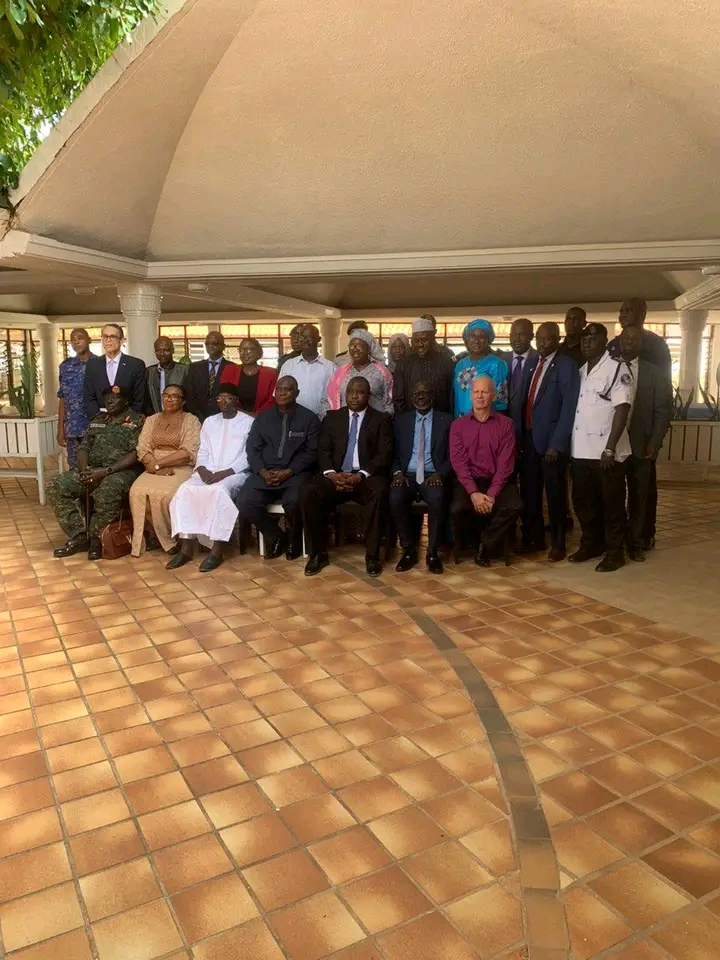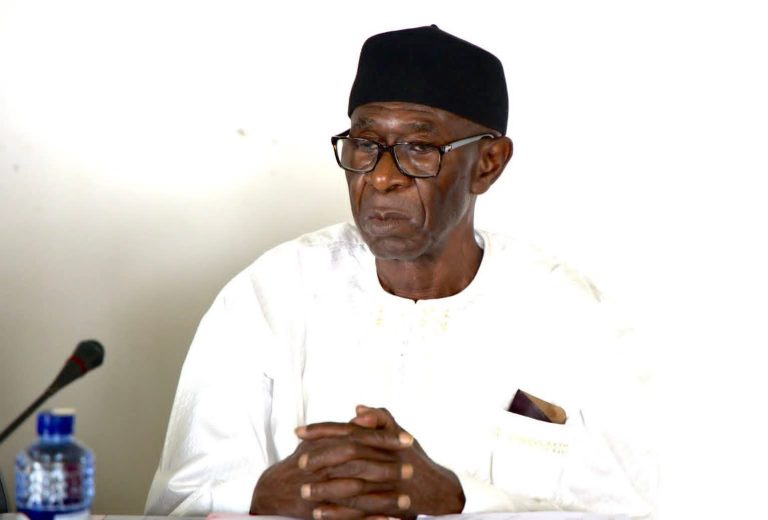
The Ministry of Defense in collaboration with Saferworld held a Validation Seminar to review the Gambia Arms trade treaty National Assessment Report -October 21st, 2024 at Prime Atlantic hotel.
The Republic of the Gambia deposited its instrument of accession on 13 June 2024 , becoming the 114th State Party to the Arms Trade Treaty which entered into force on 11 September 2024.
The Arms Trade Treaty (ATT) is an international treaty that regulates international trade in conventional arms by establishing the highest international standards governing arms transfers and seeks to prevent and eradicate their illicit trade, transfer, diversion and trans-shipment.
The Treaty requires states parties to set-up a national control system and take regulatory measures to control the export, import, transit, transshipment and brokering of, as a minimum, eight categories of major conventional arms, as well as to provide transparency about their imports and exports.
As a binding instrument governing the international transfer of conventional arms, the ATT confers a number of legal obligations on its members. Given The Gambia as a new state party, it’s a requirement that the country to meet all of those obligations.
The National Assessment Report developed in partnership with the Saferworld, MDAs, national stakeholders and partners to examines the country’s relevant national laws, regulations, structures, policies and practices as they currently stand, and assesses them in light of the requirements of the ATT.
The NAS identifies how and where The Gambia is and is not currently in compliance with its Treaty obligations, and makes a number of recommendations about how best to address the identified compliance gaps.
The report also proffered some recommendations in order for to achieve full compliance with the ATT as follows:
▪ Make the Arms & Ammunition Act the primary legislative instrument through which the ATT is enacted and amend it accordingly as a priority.
▪ Establish, maintain and publish a national register of arms brokers, with procedures for assessing suitability of potential brokers and for revoking extant registrations.
▪ Adopt the Wassenaar Arrangement Munitions List and PL5001 of the UK Military List as The Gambia’s national control list in the form of schedules to the Arms & Ammunition Act.
▪ Develop an institutional structure to cover cross-border flows of all conventional arms and ensure it has all the necessary resources and cross-governmental expertise necessary to effectively administer the national arms transfer control system consistent with all the obligations of the ATT.
▪ Establish a Licensing Committee from within the membership of the institutional structure referred to above which would be tasked with assessing any applications to transfer arms and make recommendations (to approve or reject applications) based on those assessments.
▪ Ensure that the provisions of the ATT are applied to all exports (and other applicable transfers—e.g. imports, transit and transhipment, brokering) regardless of whether the exporter is a private, commercial, or state actor.
▪ Promote the effectiveness of the ATT Agency by guaranteeing continuity of membership from each of the component Ministries/agencies.
▪ Assign specific ultimate responsibility for decisions on transfer licences to an individual Minister.
▪ Establish regulations and written procedures and processes for the management of all aspects of the arms transfer licensing system.
▪ Review, update and publish (online) all documentation related to the licence application process for use by suppliers, exporters, importers, brokers, transportation agents, end-users etc. (e.g. licence application forms, end-use certificate templates).
▪ Place information regarding relevant legislation, regulations, control lists, procedures, documentation, the registry of brokers, policies, and reports on licences granted and transfers made (see below) in the public domain via a Commission website.
▪ Actively engage with other ATT States Parties, the ATT Secretariat and other bodies established by the Conferences of States Parties, ECOWAS Convention partners and the ECOWAS Commission, and other states on a bilateral basis as appropriate to seek assistance where required, including with regard to particular licensing assessments.
▪ Establish and maintain an ATT National Point of Contact and communicate their identity and contact details to the ATT Secretariat.
▪ Assign two officials to act as authorised signatories for end-use certification purposes, and communicate their identity, function and contact details to the ATT Secretariat.
▪ Improve familiarity among relevant officials regarding information in the public domain and on websites that may help them in discharging their duties, e.g. from the official ATT Secretariat website.
▪ Require imports by state security providers to follow agreed procurement and authorisation procedures and for information on all such imports to be communicated to the institution/agency established to manage The Gambia’s arms transfer control system.
▪ Establish adequate safe-storage facilities and effective stockpile-management procedures for all government ministries, departments and agencies that import or hold conventional arms.
▪ Establish in legislation, compile, produce, communicate to the National Assembly, publish on a Government website and deliver to the ATT Secretariat an Initial Report and national annual reports, as mandated by and consistent with the requirements of Article 13 of the Treaty. This should also enable The Gambia to provide reports to the UN Register of Conventional Arms with minimal additional effort.
▪ Ensure that all transfers from and to The Gambia are included in the annual report, regardless of the identity of the exporter/importer.
▪ So as to assist border management, restrict the points of legal import, export and transit of all items on the national control list into, from and through The Gambia to Banjul International Airport, Banjul Seaport and a limited number of official land border crossing points – for example Amdallai, Farafenni and Jiboro – except where a case-specific written exemption is provided on the authority of the Commissioner-General of the Gambia Revenue Authority.
▪ Develop the capacity and quality of safe-storage facilities at all legal border entry points, and establish clear procedures for rapid, secured transfer of shipments of controlled items to secure-storage facilities where it is not possible to guarantee their security on site.




